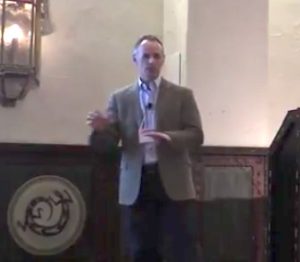 In this video from the HPC User Forum in Santa Fe, John Turner from ORNL presents: Overview of the Exascale Additive Manufacturing Project.
In this video from the HPC User Forum in Santa Fe, John Turner from ORNL presents: Overview of the Exascale Additive Manufacturing Project.
Fully exploiting future exascale architectures will require a rethinking of the algorithms used in the large scale applications that advance many science areas vital to DOE and NNSA, such as global climate modeling, turbulent combustion in internal combustion engines, nuclear reactor modeling, additive manufacturing, subsurface flow, and national security applications. The newly established Center for Efficient Exascale Discretizations (CEED) in DOE’s Exascale Computing Project (ECP) aims to help these DOE/NNSA applications to take full advantage of exascale hardware by using state-of-the-art ‘high-order discretizations’ that provide an order of magnitude performance improvement over traditional methods.
In simple mathematical terms, discretization denotes the process of dividing a geometry into finite elements, or building blocks, in preparation for analysis. This process, which can dramatically improve application performance, involves making simplifying assumptions to reduce demands on the computer, but with minimal loss of accuracy. Recent developments in supercomputing make it increasingly clear that the high-order discretizations, which CEED is focused on, have the potential to achieve optimal performance and deliver fast, efficient and accurate simulations on exascale systems.
John Turner is Group Leader of the Computational Engineering & Energy Sciences Group (CEES) at Oak Ridge National Laboratory (ORNL) and Chief Computational Scientist for the Consortium for Advanced Simulation of Light Water Reactors (CASL). He is also a Joint Faculty Professor in both the Bredesen Center for Interdisciplinary Research and Graduate Education at the Univ. of Tennessee in Knoxville and the National Center for Computational Engineering at the Univ. of Tennessee in Chattanooga.




